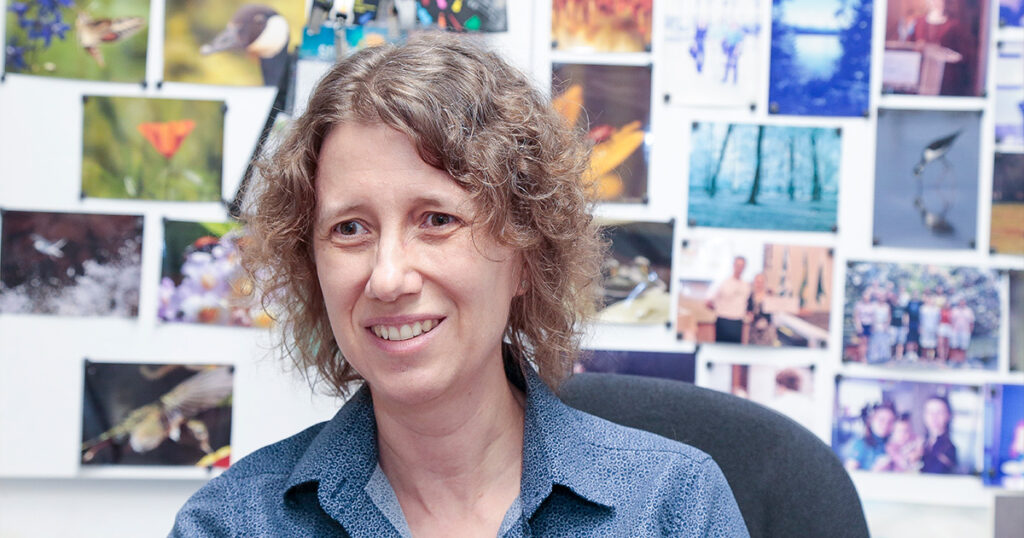

The scientist was honored for her contributions to mitochondrial biology (photo: Marcos Santos/USP Imagens)
Alicia Kowaltowski, a member of the Research Center for Redox Processes in Biomedicine, is one of five researchers in the world to win the 2024 edition of the For Women in Science International Awards.
Alicia Kowaltowski, a member of the Research Center for Redox Processes in Biomedicine, is one of five researchers in the world to win the 2024 edition of the For Women in Science International Awards.

The scientist was honored for her contributions to mitochondrial biology (photo: Marcos Santos/USP Imagens)
Agência FAPESP – Researcher Alicia Kowaltowski, of the Institute of Chemistry of the University of São Paulo (IQ-USP) and the Research Center for Redox Processes in Biomedicine (Redoxoma), was awarded the International L’Oréal-Unesco Award for Women in Science for Latin America and the Caribbean, in the “Life and Environmental Sciences” category.
Redoxoma is a Research, Innovation, and Dissemination Center (RIDC) funded by FAPESP and based at IQ-USP.
The scientist was honored for her contributions to mitochondrial biology. According to the award organizers, “her work has been fundamental to understanding the implications of energy metabolism in chronic diseases, including obesity, diabetes, and aging. Her outstanding contributions as a researcher and mentor, her advocacy for science in Latin America, and the dissemination of her work to the public are an inspiration to young scientists.”
Every year, the International L’Oréal-Unesco Award for Women in Science honors one woman from each continent, including Africa and the Arab States, Asia and the Pacific, Europe, Latin America and the Caribbean, and North America. This year, Kowaltowski will represent Latin America and the Caribbean.
The winners of this 26th edition were selected from 350 candidates from all over the world. The full list of winners can be found on the UNESCO website.
In an interview with Redoxoma’s communications department, Kowaltowski emphasized that the award was a collective achievement: “I find it a bit awkward in a way, because the award goes to one person, but the work is done by a group. I don’t see it as my award, I think it’s recognition of the lab’s work and the lab doesn’t exist without its surroundings, first of all, and Redoxoma is very important in that sense,” she said.
The full interview can be read on the Redoxoma website.
Republish
The Agency FAPESP licenses news via Creative Commons (CC-BY-NC-ND) so that they can be republished free of charge and in a simple way by other digital or printed vehicles. Agência FAPESP must be credited as the source of the content being republished and the name of the reporter (if any) must be attributed. Using the HMTL button below allows compliance with these rules, detailed in Digital Republishing Policy FAPESP.





